
How Thoughtworks Brasil Fought Ebola
Thoughtworks is a global IT consultancy company, present in 13 countries around the world. We are close to three thousand people strong in more than 30 offices. A part of our mission aligns with social and economic justice. In addition to creating customized software to revolutionize the IT market, we also aim to cause a positive impact in people’s lives.
In November 2014, a team from Thoughtworks Porto Alegre (Brazil), got involved in a mission to help tackle a crisis. The goal was to join the fight against the Ebola Crisis in West Africa, which has killed thousands of people since December 2013. According to this report from 'Doctors Without Borders', 4950 deaths have been registered out of a total of 13241 cases in Sierra Leone, Guinea and Liberia.
In response to the crisis, many initiatives are underway in Thoughtworks offices around the world. Thoughtworks has partnered with other organizations to create applications like Ebola Ghana Alert, mHero and Ushahidi.
We decided to follow the steps of these teams and work on ideas to make a difference and to save lives in these affected countries. We organized a hackathon to have functional software ready in a short period of time, given the urgency of the issue. The hackathon took place on the 4th and 6th of November, for 4 hours each day. The challenge was to develop an application to change people lives, in just 8 hours!
There were many needs identified by the health agents working in the affected countries. We chose to develop a solution for those identified at the NGO, Save the Children. In short, their needs related to a system that would operate on their CDC (Center for Disease Control) in Sierra Leone. Here's a video that shows the wards of the CDC, inaugurated on 5th of November. They used an implementation of OpenMRS, known as Reference Application (based on what Thoughtworks built for the Mirebalais Hospital in Haiti). However, they did not have an essential feature in this Reference Application to assist with the treatment of inpatients infected with Ebola.
Anybody treating inpatients located in the red-zone* should use protective equipment like this:
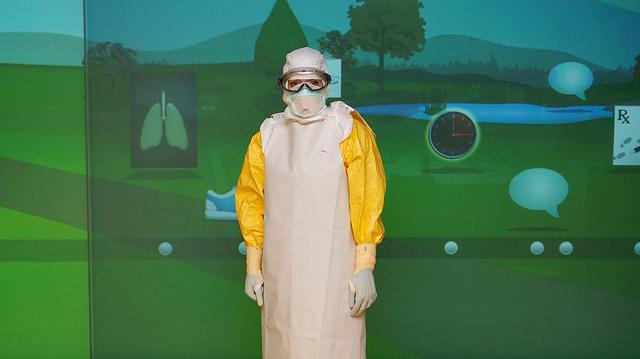
The health agents, who work in these red-zones, have 40 minutes to collect all the inpatient information related to their treatment. Any object used in these areas must be disinfected, and every single piece of paper must be burnt. Getting this done with the protective equipment on, limits the use of any electronic equipment on this area and makes communication challenging.
A possible solution for this scenario was to develop an application that could work on waterproof tablets. These tablets could then be disinfected as soon as the health agent leaves the red-zone.
We needed to take into consideration, the conditions that the agents worked in while creating the application. We had to keep in mind, the short time they had within the red zones, the protective clothes they had to wear and the possible lack of familiarity with technology. Our focus was to make the tablets easy to use by using stylus pens. We put in a lot effort to improve the experience of a user wearing protective glasses, which blurred many a time due to dust or heat.
On the two days of the hackathon, we created an AngularJS web-based application, to be used by the health agents who work in these hard conditions. A few days before the hackathon, the team got together for a sketching session, which was very helpful to brainstorm ideas and to create the first version of the UI (user interface).
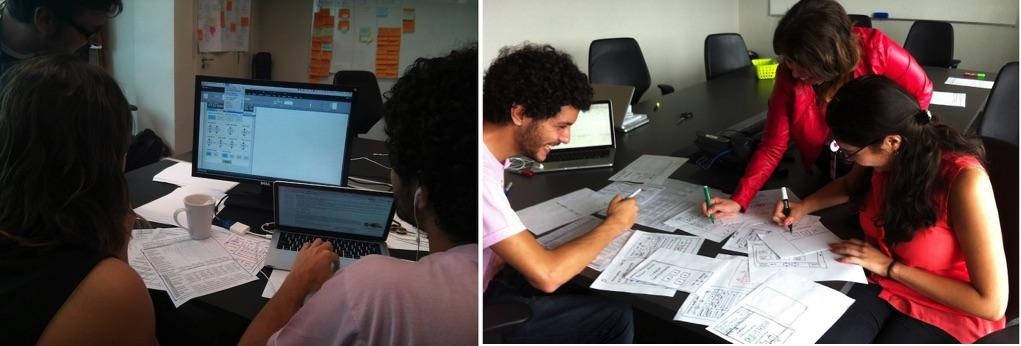
This is how the mockup looked:
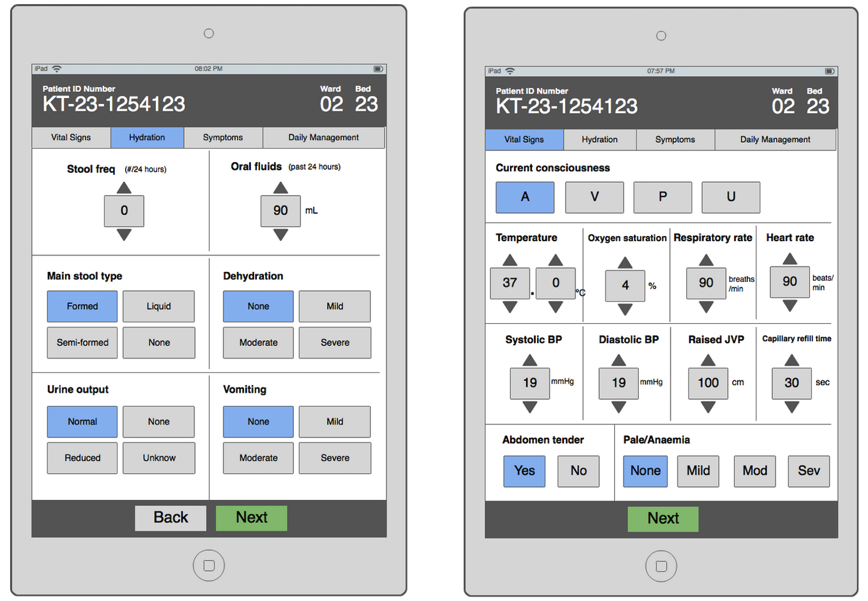
The application was designed to be intuitive and as simple as possible: large buttons, big font sizes, higher contrast and a one-click action on the whole system.
The team consisted of 6 developers, 2 experience designers, 2 quality analysts, and 1 business analyst. It took approximately 10 hours of intense work and a lot of cooperation between the team.
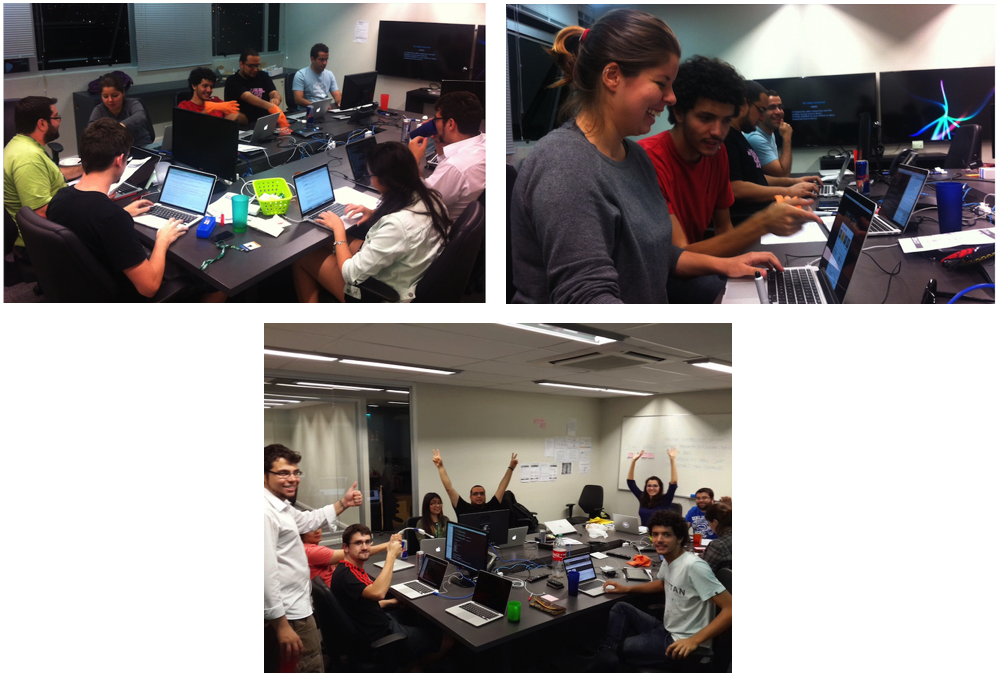
The usability testing we performed was very interesting. We took into consideration most of the conditions that could jeopardize the visualisation and the user interaction with the tablet - the protective equipment, sweat, dust and the time taken to fill in all the fields of the inpatient form.
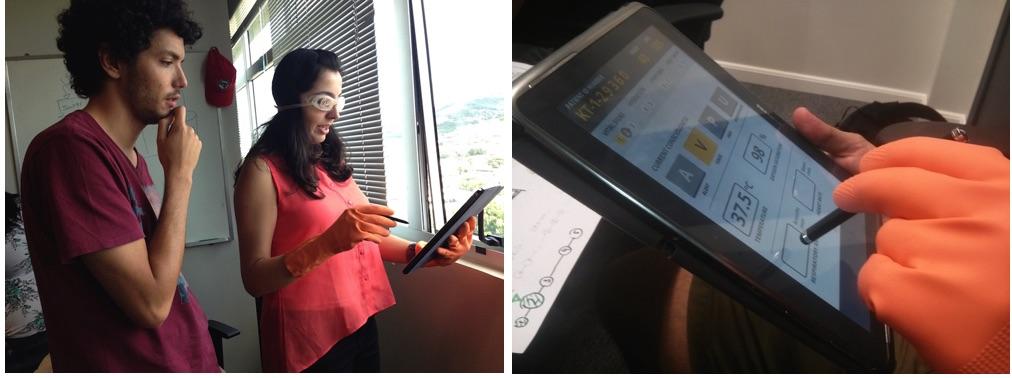
Here is how the application looked after we finished:
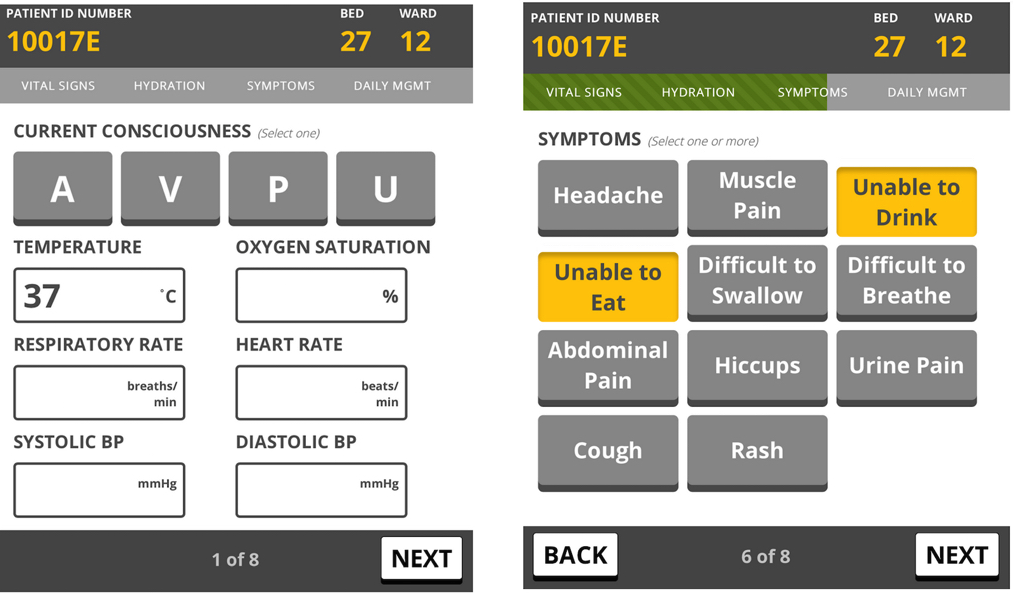
In the end, the hackathon validated that creating an app was possible, and that it was worth making a larger investment to create the whole module. We deployed the app in February 2015 and integrated a new module for the OpenMRS platform, the Ebola Treatment Centre.
Besides Brazil, this module was the result of the work done by Thoughtworks teams spread across Australia, China, USA, England, Uganda and Sierra Leone. After the hackathon, other teams worked on improvements and new features on top of what we had built. After the app was deployed, Dr. David Walton, Thoughtworks Director of Global Health, went to Sierra Leone to train the health agents using the application.
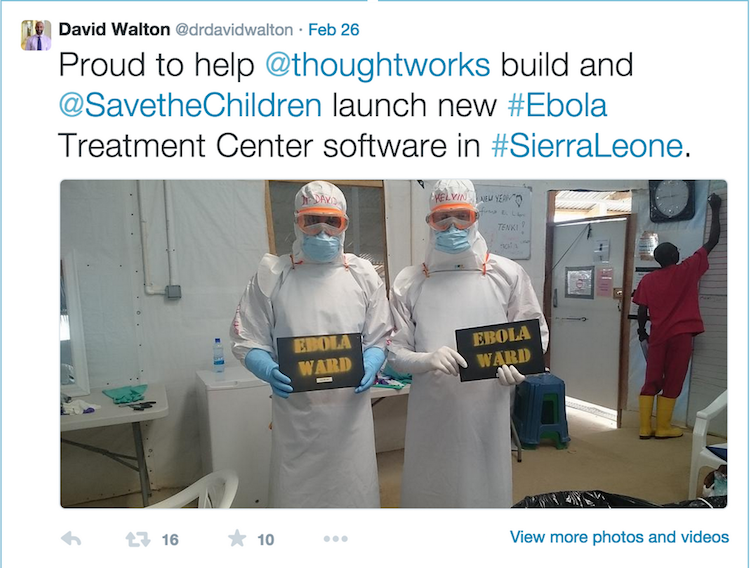
The results from this initiative exceed our expectations. We are happy with the positive feedback from the users and, more importantly, that our work helped save lives.
Disclaimer: The statements and opinions expressed in this article are those of the author(s) and do not necessarily reflect the positions of Thoughtworks.














